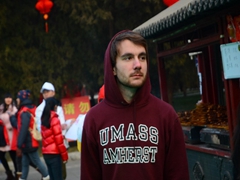US shows its true colors
(China Daily) Updated: 2014-04-29 07:53Just as many have observed, united States President Barack Obama's Asia visit is essentially about Washington's and its allies' unease about a rising China.
From Tokyo to Manila, Obama has tried to pick his words so as not to antagonize Beijing. But from the US-Japan joint statement to the new US-Philippines defense agreement, it is increasingly obvious that Washington is taking Beijing as an opponent. With Obama reassuring the US' allies of protection in any conflict with China, it is now clear that Washington is no longer bothering to conceal its attempt to contain China's influence in the region. It is even less convincing to say the US pivot to the Asia-Pacific is not targeted against China.
Obama's rhetoric about peace and international law sounds hollow because it contradicts what Washington and himself have been up to. The US-Japan statement, for instance, is a dangerous license for the increasingly rightist Japanese Prime Minister Shinzo Abe to provoke more trouble. Its shameless disregard of historical facts and endorsement of Abe's rightist inclinations will only cause further instability.
For a considerably long period, Chinese have cherished the naive thought that Washington will rein in its unruly allies when they go too far.
Obama's current trip should be a wake-up call that this is just wishful thinking. His sweet promises of a new type of major-country relationship should not blind us to the grim geopolitical reality: Ganging up with its troublemaking allies, the US is presenting itself as a security threat to China.









